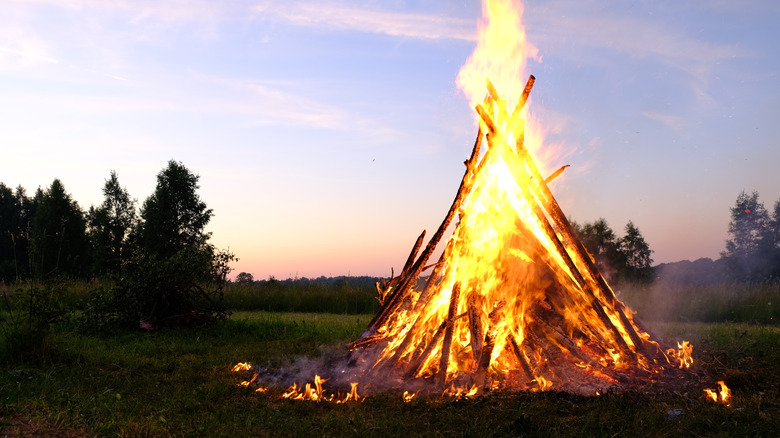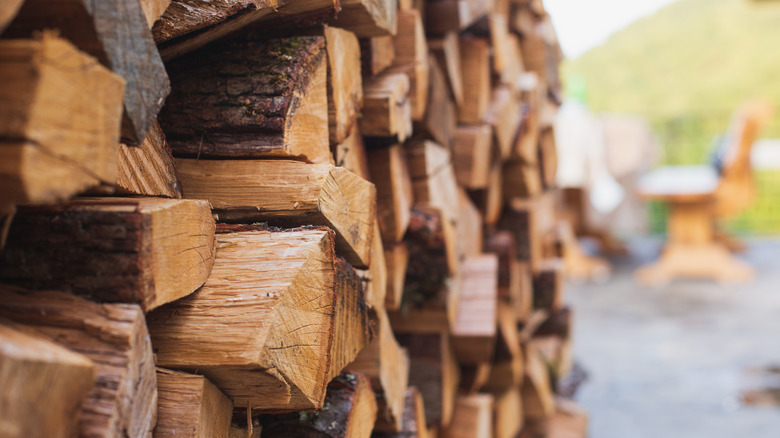Why Bonfires Can Be More Dangerous Than You Think
For many, roasting marshmallows over a bonfire is a cherished summertime activity, but it may not be so good for your health. In fact, breathing in bonfire smoke, or any type of wood smoke, can potentially damage your lungs, especially if you have an underlying respiratory condition (via Piedmont Healthcare).
That's because bonfire smoke contains fine particles and toxic air pollutants that can get inside your lungs and make it difficult to breathe. While most people will remain unaffected by occasional and infrequent exposure to bonfire smoke, people with asthma and chronic obstructive pulmonary disease (COPD) should exercise caution and limit their exposure to bonfires and fire pits.
"We see more of our patients in the summer months, particularly patients with asthma and COPD, who may experience exacerbations of their illness related to smoke exposure as well as other air pollution," says pulmonologist Dr. Charles Hartley at Piedmont Healthcare. "The fine particulate matter component of wood smoke also represents a risk for cardiovascular disease, including arrhythmias, heart attacks, and strokes."
Bonfire safety tips
This doesn't mean you need to swear off bonfires, however. It just means that you need to take some precautions in order to ensure that the bonfire you build is one that is relatively safe. For instance, you should only use untreated wood that has been left out to dry for six months or more. This will reduce the amount of smoke your bonfire emits, limiting your exposure to wood smoke. Sitting farther away from the bonfire can also reduce the amount of wood smoke you inhale (via Cleveland Clinic).
It's also a good idea to avoid using gasoline or any other fire accelerants to start or keep your bonfire burning. That's because accelerants are ignitable solvents that can cause fires to quickly become dangerous, releasing toxins and chemicals into the air. Starting your bonfire by rubbing two dry sticks together is a much safer alternative. It also can't hurt to keep a bucket of water nearby to prevent spreading in the event that the flames become unmanageable.


